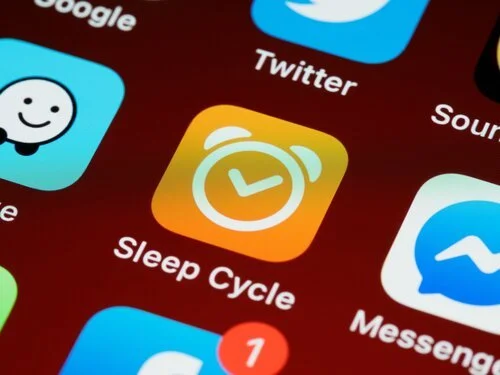Why Am I a Slow Writer? Sleep, Memory and Cognition
Guest post by Dr Chris Hill.
Previously, I wrote about the role of inspiration and mental well-being in productive writing practice. Here I explore how good sleep habits can improve your writing productivity.
SLEEP HABITS
For many of us, sleeping well is actually harder than eating well or keeping fit. We live in societies obsessed with productivity. Family, work and media compete for every moment of our waking life’s attention. Sleep is the domain we often shorten in order to create extra hours to meet our goals.
There is also a prevalent lore that successful people don't need much sleep. According to Berkeley sleep researcher Matt Walker, there is a rare gene that allows some people to survive on six hours’ sleep with minimal impairment, but such people are extremely few.
The National Sleep Foundation states that adults need between 7-9 hours per night (older adults need 7-8 hours), while teenagers need 8-10 hours per night (take note, undergrads).
MEMORY, LEARNING AND CREATIVITY
One key reason writers need sleep is that it is critical for memory and learning.
Sleep the night before you write supports the brain in building new memories. Sleep the night after you write consolidates new memories and transfers them from your short-term memory into your long-term memory. Sleep may even allow you to retrieve forgotten or lost memories in some instances.
However, the most significant role that sleep plays for writers is in creativity.
When you sleep, your brain explores random relationships between the memories, ideas and information that you have absorbed during the day. As Walker describes it,
“In ways your waking brain would never attempt, the sleeping brain fuses together disparate sets of knowledge that foster impressive problem-solving abilities.”
Being awake on the other hand is taxing on the brain. Chronic sleep deprivation impairs your memory and can lead to depression.
SO WHAT CAN I DO TO OPTIMISE MY SLEEP?
Start by making sure you are getting enough. Sleep tracking outside of a laboratory is not an exact science. However, over the last couple of years, smartwatch makers have begun collaborating with sleep labs to create tracking devices packed with sensors. If you love data, this is a good option.
But, if you are not keen on adding tech to your wrist, then keep a record of when you go to bed and when you wake up.
When I started the journey of exploring sleep a year ago, I knew I wasn’t a great sleeper. Like many people, I push myself at work, have small children and am susceptible to a Netflix binge. But, I figured I got close to 7 hours most nights.
It turned out that most often I got less than 6 hours. This is another point that Walker raises. Many of us allow ourselves to live with chronic sleep deprivation so that it becomes “normal” to feel tired all the time and to need several coffees to get going in the morning.
Tips for optimising your sleep:
Nap: A short 20-30 min nap in the afternoon may improve your memory for the remainder of that day. A caveat is that napping does not have the “power” to replace sleep lost the night before. And, napping too late can mess with your sleep cycles.
Light pollution and body temperature: In the hours before sleep it’s important to avoid light pollution and lower your core body temperature. Somewhat counter-intuitively, a hot bath may aid in the latter endeavour.
Caffeine: Caffeine is a powerful ally of many a writer. It makes you feel wired and wakeful by blocking the chemical signals that tell your brain it’s tired. But this process can also work against sleep’s powerful influence on memory and creativity. Caffeine has a half-life of around 5 hours and swills around your system for up to 10 hours after consumption.
Alcohol and Sleeping Pills: Some people turn to alcohol and sleeping pills as sedative sleep aids. But both actually disrupt the body’s natural restorative sleep cycles and are potent suppressants of REM dream sleep. In other words, neither a nightcap nor a sleeping pill helps anyone get quality sleep.
There are plenty of other factors that influence your sleep and plenty of additional benefits to be gained from a good night’s rest. I can’t recommend Matt Walker’s book, Why We Sleep: Unlocking the Power of Sleep and Dreams enough. All of the above facts, unless otherwise indicated, are sourced from the chapters of his book.
I set about following many of the suggestions above and have improved my sleep habits, but I am by no means a sleep master. It’s very easy to fall back into bad habits, so don’t give up. The benefits to your writing practice are more than worth it.



